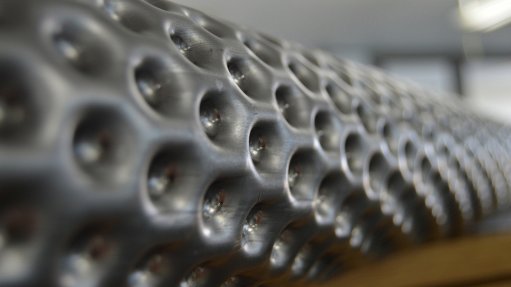
DIMPLE TUBE TECHNOLOGY The newly developed technology from Bosch Projects increases the heating surface area of an existing vacuum pan by 15% and improves the turbulence and heat transfer characteristics, compared with smooth walled tubes
Dimple Tube technology – developed and patented by Bosch Projects, part of the Bosch Holdings group of engineering, construction and operations management companies – is set to transform the production capacity of vacuum pans.
The newly developed Dimple Tube technology increases the heating surface area of an existing vacuum pan by 15% and improves the turbulence and heat transfer characteristics, compared with smooth walled tubes.
“Bosch Projects research and development initiative designed and developed this advanced Dimple Tube technology to optimise equipment productivity, reducing batch pan cycle time, improving pan floor capacity and reducing operational costs,” says Bosch Projects sugar equipment sector manager Darius Bezuidenhoudt.
“Although this technology has been developed for process equipment within the sugar industry, the new design provides a cost-effective alternative to the conventional means of increasing equipment capacity and improving energy efficiency in various other sectors where shell and tube heat exchangers are used.”
He explains that the Dimple Tubes design is compatible with existing equipment for retrofit applications, which means that simple and inexpensive upgrades are possible, with minimal and/or zero vessel modifications.
“The original concept has been developed, analysed and tested over three years, through rigorous engineering processes and tests. “An in-house automated manufacturing system, coupled with a stringent quality management system, ensures high levels of product customisation, quality control and consistency.”
Integrating Dimple Tubes into batch and continuous vacuum pans, improves evaporation rates, heat transfer coefficient, energy use, massecuite circulation and crystal quality and exhaustion, while reducing pan cycle time and improving processing capacity.
As part of the company’s extensive testing programme, this technology was installed into an existing batch pan and has been operational for three seasons. Separate laboratory test results showed an increase in evaporation rates of over 50% at the start of batch vacuum pan cycles and over 20% towards the end of batch vacuum pan cycles. This means an overall batch vacuum pan cycle time improvement of over 30% was achieved, which significantly enhanced pan floor capacity.
Another benefit is a slight decrease in graining volume, unlike an increase in graining volume which is normally found with competing technologies. The lower graining volume reduces initial thermal inertia at the start of the pan cycle, which significantly improves overall pan floor performance.
Bosch Projects integrates engineering technology and project management to provide customised solutions in diverse industries. These sectors include sugar and ethanol, power utilities and materials handling, commercial and industrial projects.
The Bosch Projects team works closely with its technology partners and fabricators globally, to ensure the manufacture of all equipment adheres to stringent international quality standards and exact design specifications.
The company has offices in Africa, South and Central America, Australia and the UK, technology partners in the Southeast Asia region and the US, as well as agents in several regions globally.